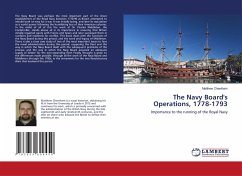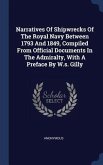The Navy Board was perhaps the most important part of the shore establishment of the Royal Navy between 1778-90 as Britain attempted to rebuild both its navy for a war it was initially losing, and later its reputation as a world power following the humiliating loss of their American colonies. In the midst of all of this the work of Sir Charles Middleton, the Comptroller, stands above all in its importance in ensuring that Britain initially regained parity with France and Spain and later surpassed them in numbers and readiness for conflict. This book deals with the functions of the Navy Board during this period, and the work and legacy of Middleton. There is also a close case study of two of the most important issues to face the naval administration during this period; coppering the fleet and the way in which the Navy Board dealt with the subsequent problems of the process; and the way in which the Navy Board acquired an adequate supply of timber for the ever-expanding fleet. Finally, thought is given to the differences made possible, through all the work of the Navy Board and Middleton through the 1780s, in the armaments for the two Revolutionary Wars that bookend this period.
Hinweis: Dieser Artikel kann nur an eine deutsche Lieferadresse ausgeliefert werden.
Hinweis: Dieser Artikel kann nur an eine deutsche Lieferadresse ausgeliefert werden.








